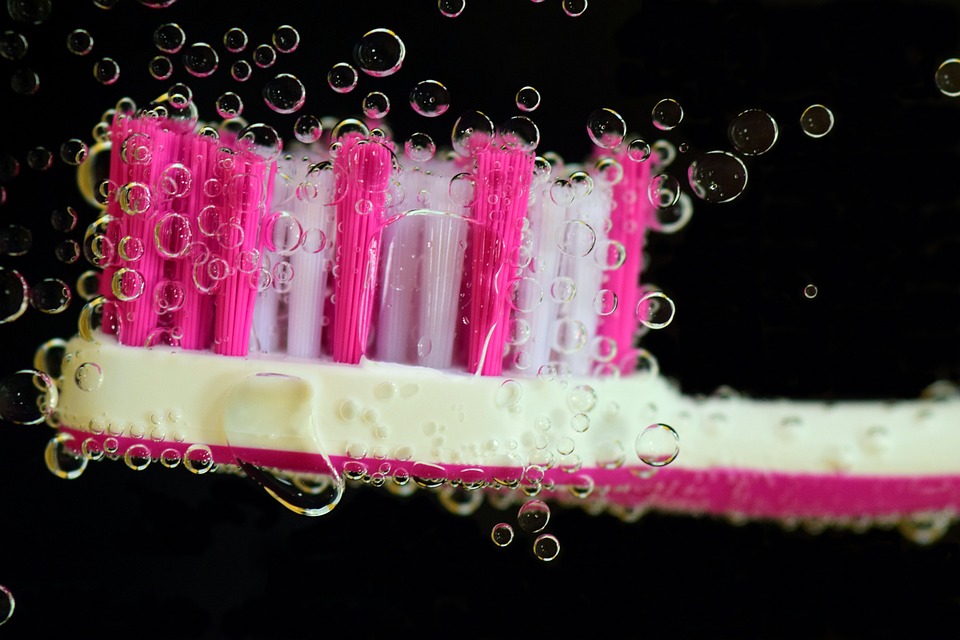The Science Behind Toothpaste: How It Works to Keep Your Teeth Clean
When it comes to maintaining good oral hygiene, toothpaste plays a crucial role. We all know that brushing our teeth with toothpaste is essential, but have you ever wondered how it works to keep your teeth clean? In this article, we will delve into the science behind toothpaste and explore its effectiveness in maintaining a healthy smile.
The Composition of Toothpaste
To understand how toothpaste works, it is important to first examine its composition. Toothpaste is a carefully formulated product that combines various ingredients to deliver optimal oral health benefits. While specific brands may have slight variations in their formulations, most toothpastes contain the following key components:
- Abrasive Agents: Toothpaste contains abrasive particles that help in the mechanical removal of plaque and surface stains. Common examples of abrasive agents found in toothpaste include calcium carbonate and hydrated silica.
- Fluoride: Fluoride is a mineral that plays a vital role in preventing tooth decay. It helps to strengthen the enamel, making it more resistant to acid attacks from bacteria and sugars. Fluoride also aids in remineralization, which can reverse early signs of tooth decay.
- Detergents: Detergents, such as sodium lauryl sulfate, are responsible for the foam and lather produced when brushing. They help to loosen debris and enable thorough cleaning.
- Binders and Thickeners: These ingredients give toothpaste its texture and consistency. Binders and thickeners ensure that the toothpaste maintains its shape and does not separate over time.
- Flavoring Agents: Toothpaste often contains flavoring agents, such as mint or fruit extracts, to enhance the taste and provide a fresh breath sensation after brushing.
- Humectants: Humectants like glycerin help to keep the toothpaste from drying out and maintain its smooth texture.
How Toothpaste Works
Now that we understand the basic composition of toothpaste, let’s explore how it works to keep your teeth clean and healthy. The following are the key mechanisms by which toothpaste effectively promotes oral hygiene:
1. Plaque Removal:
One of the primary functions of toothpaste is to aid in the removal of dental plaque. Plaque is a sticky biofilm that forms on the teeth and contains harmful bacteria. The abrasive particles present in toothpaste help to physically scrub away the plaque, preventing its buildup and reducing the risk of gum disease and tooth decay.
2. Stain Removal:
Toothpaste also plays a role in removing surface stains from the teeth, caused by consuming certain foods, beverages, and tobacco products. The abrasive agents gently polish the enamel, minimizing the appearance of stains and restoring the natural whiteness of your teeth.
3. Fluoride Protection:
Fluoride is a key ingredient in toothpaste that offers significant protection against tooth decay. It works by strengthening the enamel, making it more resistant to acid attacks from bacteria. Additionally, fluoride promotes remineralization, which can repair early signs of tooth decay and prevent the formation of cavities.
4. Fresh Breath:
Many toothpaste brands contain flavoring agents that provide a refreshing taste and help combat bad breath. These flavoring agents leave a pleasant sensation in the mouth, leaving you with fresh breath after brushing.
Frequently Asked Questions (FAQs)
Q: How often should I brush my teeth?
A: It is recommended to brush your teeth at least twice a day, preferably after meals and before bedtime.
Q: How long should I brush my teeth for?
A: Dentists recommend brushing your teeth for a minimum of two minutes each time to ensure thorough cleaning.
Q: Can toothpaste alone prevent cavities?
A: While toothpaste is an essential component in cavity prevention, it should be complemented with other oral hygiene practices such as regular flossing, a balanced diet, and routine dental check-ups.
Q: Is it necessary to use fluoride toothpaste?
A: Fluoride toothpaste is highly recommended as it provides added protection against tooth decay. However, if you have specific concerns or medical conditions, consult with your dentist for personalized advice.
Q: Are natural toothpastes as effective as regular toothpastes?
A: Natural toothpastes may have varying effectiveness depending on their specific ingredients. It is important to choose a natural toothpaste that contains fluoride and has been approved by dental professionals for optimal oral health benefits.
For more detailed information on the science behind toothpaste, you can refer to this informative article.




